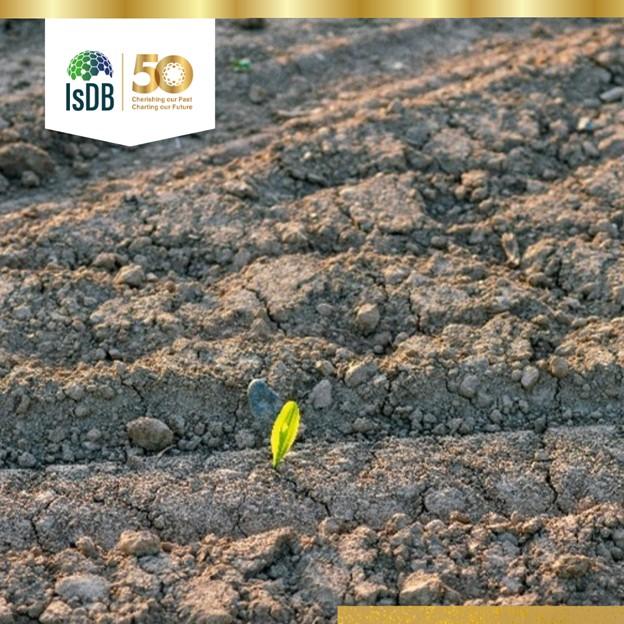Read in
The Lives and Livelihoods Fund’s investments are yielding promising results in Africa’s farmlands. Our critical financial support to the national governments in 12 African countries is coming at a time when 281 million people in the continent do not have enough food to eat, nearly three-quarters of the African population cannot afford nutritious food, and drought continues to threaten lives and livelihoods in the Horn of Africa.
The Fund is strengthening Africa’s agriculture, both crops and livestock, and associated agrifood systems through 16 integrated projects. These projects – grounded in a unique and low-cost financing model – are determined to create productive and sustainable food systems in IsDB-member countries, contributing to the food and nutritional security of the African continent at large.
Seeding Long-term Food Security
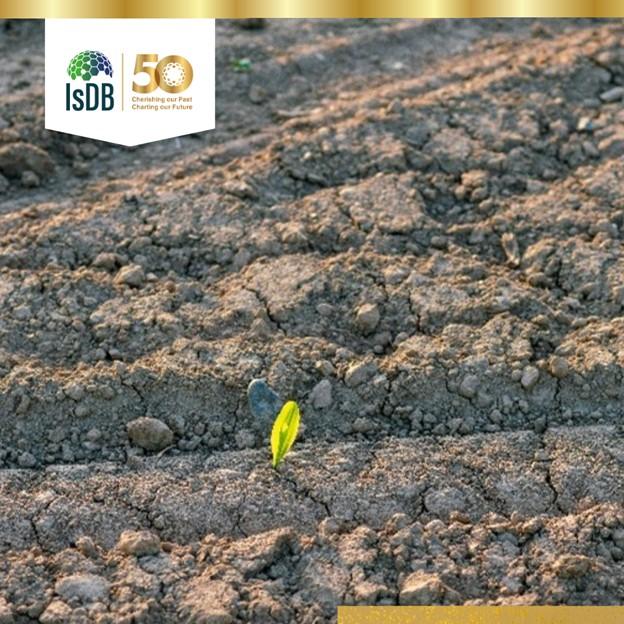
Every seed has the potential to grow crops. But if a plant fails, that potential is wasted.
Nearly 30% of the food is lost between the field and the market in sub-Sahara Africa. When food is lost, the land, water, and other inputs used to produce it are lost too, thus taking an irreversible toll on our natural resources and manpower.
In consultation with technical and field experts, LLF has designed sophisticated interventions to ensure safe and wholesome food journey from our farms to your fork. At LLF,
The Fund is working with member countries on the distribution and adoption of improved seed varieties for high-value cash and export crops such as maize, rice, coffee, cassava, tea, and others. These enhanced quality seeds are breathing new life into the farm yields, producing weather and pest-resistant crops. This is markedly safeguarding farmers against potential farm and food loss, while also improving market performance of these crops.

Optimizing the Harvest and Market Potential of Farm Produce
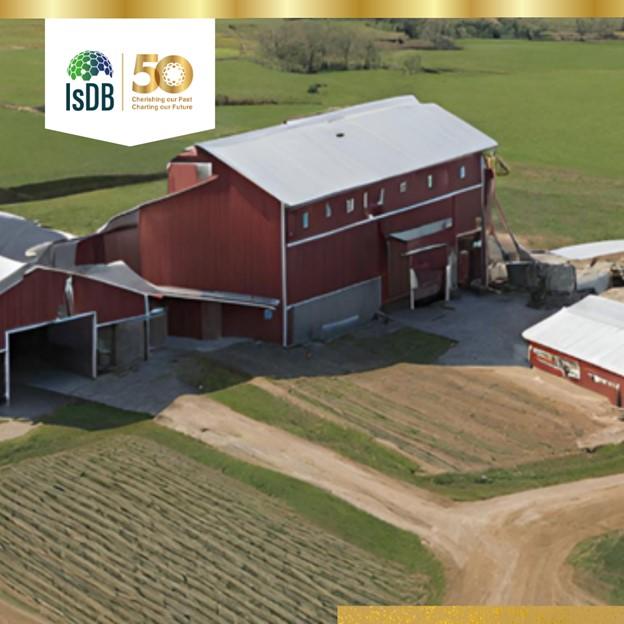
Whether our produce will make it to the markets or not is one question that keeps bogging down our farmers despite adopting good agricultural practices and inputs.
As with many developing countries, a glaring challenge facing the famers is optimizing their harvest through proper storage facilities to maintain quality and prevent food loss.
In Sierra Leone, Senegal, Niger, and Guinea, LLF is constructing and rehabilitating multipurpose warehouses and storage units to enable small holder farmers to save up to 40% post-harvest losses.
LLF’s investments in the establishment of on-farm infrastructures such as processing units, bulking centers and storage facilities are making a significant contribution to avert food losses at the front end of the supply chain and help more crops make it off the farm with improved shelf life.
For example, coffee farming communities in Uganda are benefiting from LLF’s vision to upgrade value and supply chains through the state-of-the-art processing and packaging facility and storage silos.
Milking the Cold Chain and Milk Collections Centers to Cu Malnutrition
“Someone having a ton of coffee, it would take him a whole week or two to pound small quantities of beans. But with this coffee processing machine given to us by the LLF LEGS Project, 100 farmers can process their beans daily, while ensuring maximum quality standards” ~ Guni Zephania, 50, Rwenzori Region/Uganda
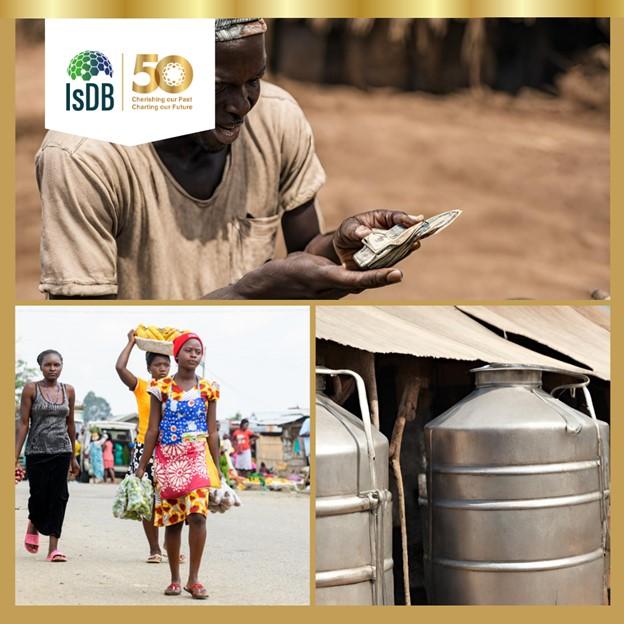
With the philosophy of leaving no farmer behind, LLF is making sure that dairy farmers in Mali, Senegal, Burkina Faso, Nigeria, and Uganda have access to over 300 milk collection centers to ensure waste reduction. In the same vein, the Fund is improving milk safety at farm-level with the establishment of 40 milk cooling facilities.
These efforts are progressively resulting in reduced wastage and providing consumers with access to safer, high-quality food products.
Transforming Local Food Markets to Secure Food Supplies
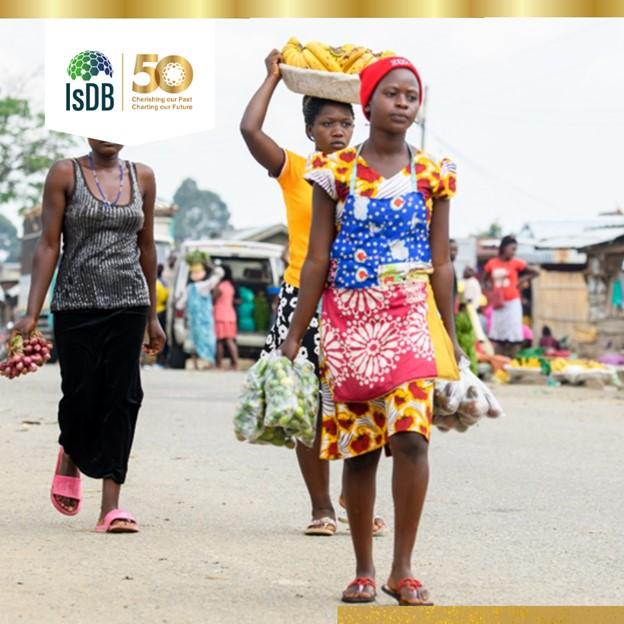
Local food markets are vital nodes in the food systems, linking consumers and sellers with producers, particularly in rural and peri-urban areas.
In low-and-middle income countries where LLF is working, there is often a challenge of either non-existent or aging market infrastructure, ultimately impacting food safety and accessibility that results in significant food waste.
The LLF-funded market infrastructure improvements are undoubtedly transforming food system in critical ways. Our work in Uganda’s Kihondo market that serves 650 vendors (over 80% women) is a testimony to LLF’s innovation that has the potential to reduce food loss due to spoilage, poor storage and/or handling.
The construction of vegetable and fruit market in Kihondo is speaking to the vendors’ aspirations of working in a safer and an enabling environment. On the other hand, the vegetable and fruit suppliers are also expecting increased improvement in food hygiene and food quality, reducing foodborne illnesses.
Paving the way to Zero Hunger in Africa
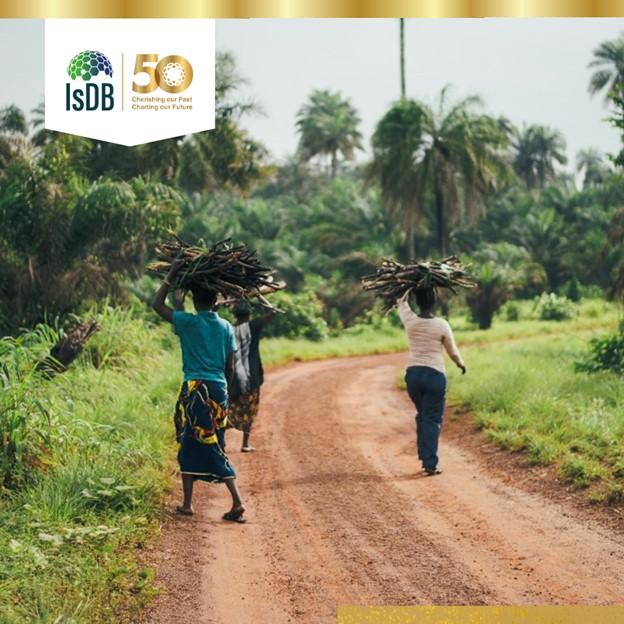
Coming to the most critical part of food journey is access to roads and transportation of adequately stored harvest to local food markets and beyond.
Rural communities benefiting from LLF’s interventions are predominantly agrarian, routinely located three to five hours away from the main markets. What this implies is that food cannot get in and out of the villages in the quantities needed for the local population, reducing peoples’ access to adequate food and livelihood options.
Lack of all-season infrastructure, such as feeder roads, constrain farmers to sell their surplus produce that often spoils before it can be eaten.
The LLF-supported road construction and rehabilitation projects in Africa and Asia are linking isolated farming communities to business hubs, thus, providing an integrated response to supply and demand gaps caused due to post-harvest losses.
To enhance agricultural productivity, the revamped roads are also playing a critical role in facilitating farmers’ access to fertilizers, mechanized equipment, and enabling supporting activities like labor, agricultural extension workers and veterinary services to reach farms more easily.
Microfinance for the Win
Making safe and nutritious food available for impoverished communities remains a top strategic priority with the Lives and Livelihoods Fund. The measures put in place by LLF to reduce food loss and overcome technical and infrastructure limitations are coupled with provision of improved financing and credit to small-scale farmers, particularly women, to allow them to diversify or scale their production.
LLF is rolling out Islamic microfinance products in Uganda, Niger and Senegal to bolster value chains livestock and different staple crops. This is equipping communities with affordable financial resources to grow their agribusinesses and fast-track their economic growth.


